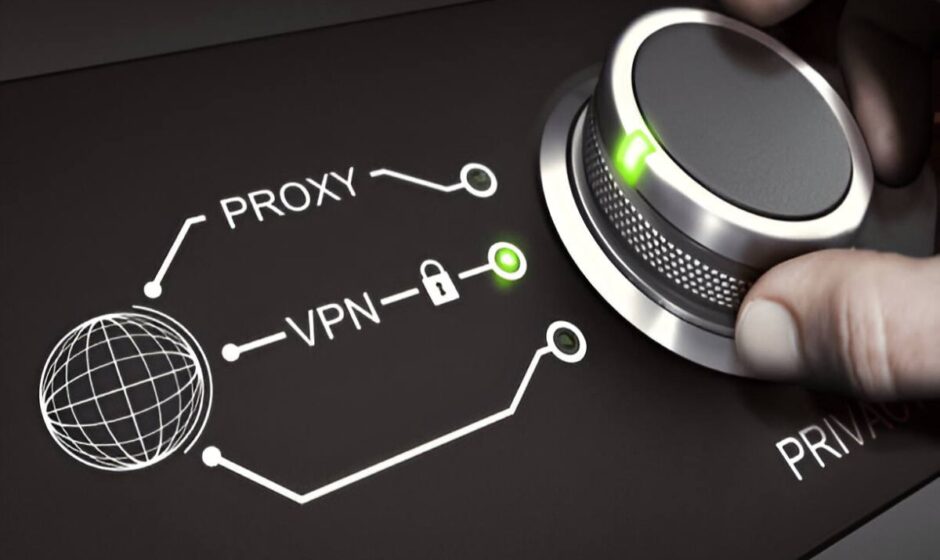Every click, search, or login today leaves behind a digital trace. These traces are valuable not just to businesses but also to malicious actors seeking to exploit personal or corporate information. With the number of cyberattacks growing each year, the question isn’t whether security measures are necessary, but how effective they are. Proxies, often underestimated in this realm, have become powerful tools in strengthening cybersecurity. They serve as a protective layer between users and the internet, offering more than just an alternate path for online communication – they help defend data in an increasingly complex digital world and complement essential online safety tips for both individuals and organizations.
What exactly are proxies in cybersecurity?
At their core, proxies act as intermediaries. When you send a request to access a website or online service, the proxy server processes the request first and then communicates with the destination. The response comes back to the proxy, which relays it to you. This means your real IP address, a digital identifier of your device, remains hidden. Think of it like having a trusted assistant deliver your letters without revealing your home address – no one knows who you are or where you live.
This anonymity makes proxies highly valuable for both personal and corporate cybersecurity. They prevent direct exposure to the web, reducing risks such as targeted attacks, malicious tracking, or identity theft.
How proxies strengthen cybersecurity defenses
The cybersecurity role of proxies is multifaceted, offering a shield against a variety of digital threats. They contribute by enhancing privacy, filtering harmful content, and distributing traffic to prevent system overloads. Here are some notable benefits:
- Masking identities – By hiding IP addresses, proxies make it harder for hackers or cybercriminals to pinpoint a user’s location or system.
- Blocking malicious traffic – Proxies can detect suspicious patterns and block harmful requests before they reach the network.
- Load balancing – For organizations handling large amounts of data, proxies spread out requests to prevent overload, reducing the risk of denial-of-service attacks.
- Data monitoring and control – Companies can configure proxies to monitor outgoing and incoming traffic, ensuring sensitive data isn’t unintentionally leaked.
These advantages make proxies more than just convenience tools; they become integral to any comprehensive cybersecurity framework.
Real-world applications of proxies in digital protection
Beyond theory, proxies are actively shaping the way individuals and businesses protect themselves. For example, financial institutions use them to monitor fraudulent activities, ensuring sensitive data from customers doesn’t fall into the wrong hands. E-commerce platforms rely on proxies to manage traffic surges during promotions while preventing bot-driven attacks. Even healthcare providers use proxies to safeguard confidential medical records in compliance with regulations.
To visualize this, here’s a simplified table showing different applications:
| Sector | Proxy Usage | Cybersecurity Benefit |
| Finance | Fraud detection, transaction monitoring | Protects sensitive banking data |
| E-commerce | Load balancing, bot traffic management | Prevents service disruptions |
| Healthcare | Secure patient data transfer | Ensures compliance with privacy laws |
| Corporate enterprises | Employee traffic monitoring, access control | Reduces insider threats and data leaks |
As industries face more sophisticated threats, proxies serve as adaptable guardians, fitting into existing security systems with ease.
Why proxies matter more now than ever before
The digital world is no longer just about browsing websites – it’s about protecting identities, securing financial data, and ensuring that sensitive information remains private. With remote work becoming standard and global digital connections increasing, attack surfaces have multiplied. A single breach can lead to massive financial losses, reputational damage, or legal repercussions.
This is where services such as Proxys.io step in. Offering advanced proxy solutions with a wide range of IPs and geolocation options, they provide businesses and individuals the ability to stay anonymous, filter harmful traffic, and reinforce overall online safety. By integrating such solutions, users gain more than privacy; they gain peace of mind knowing their data is shielded.
The future of proxies in cybersecurity
Cybersecurity is a constantly evolving battlefield. Just as threats become more advanced, so do protective measures. Proxies will continue to play a central role in this evolution, but their capabilities are likely to expand. With integration into artificial intelligence and machine learning systems, future proxies could proactively predict and neutralize threats before they even occur.
Imagine a scenario where your proxy doesn’t just relay traffic but actively analyzes patterns, warns you of potential risks, and adapts in real-time to protect your systems. That future is closer than many realize, making proxies not only relevant but indispensable in the digital security landscape.
Final thoughts
Cybersecurity isn’t about locking one door; it’s about ensuring that every entry point is guarded. Proxies act as both locks and surveillance systems, safeguarding sensitive information while enabling smooth, controlled access to the web. Whether you are an individual seeking privacy or a business securing valuable assets, proxies stand as silent defenders in the digital world. Investing in them today is an investment in tomorrow’s security.
Also read: Discover the MenBoostermark Software Program Today!


